Special Report
States With the Biggest Gun Trafficking Problem
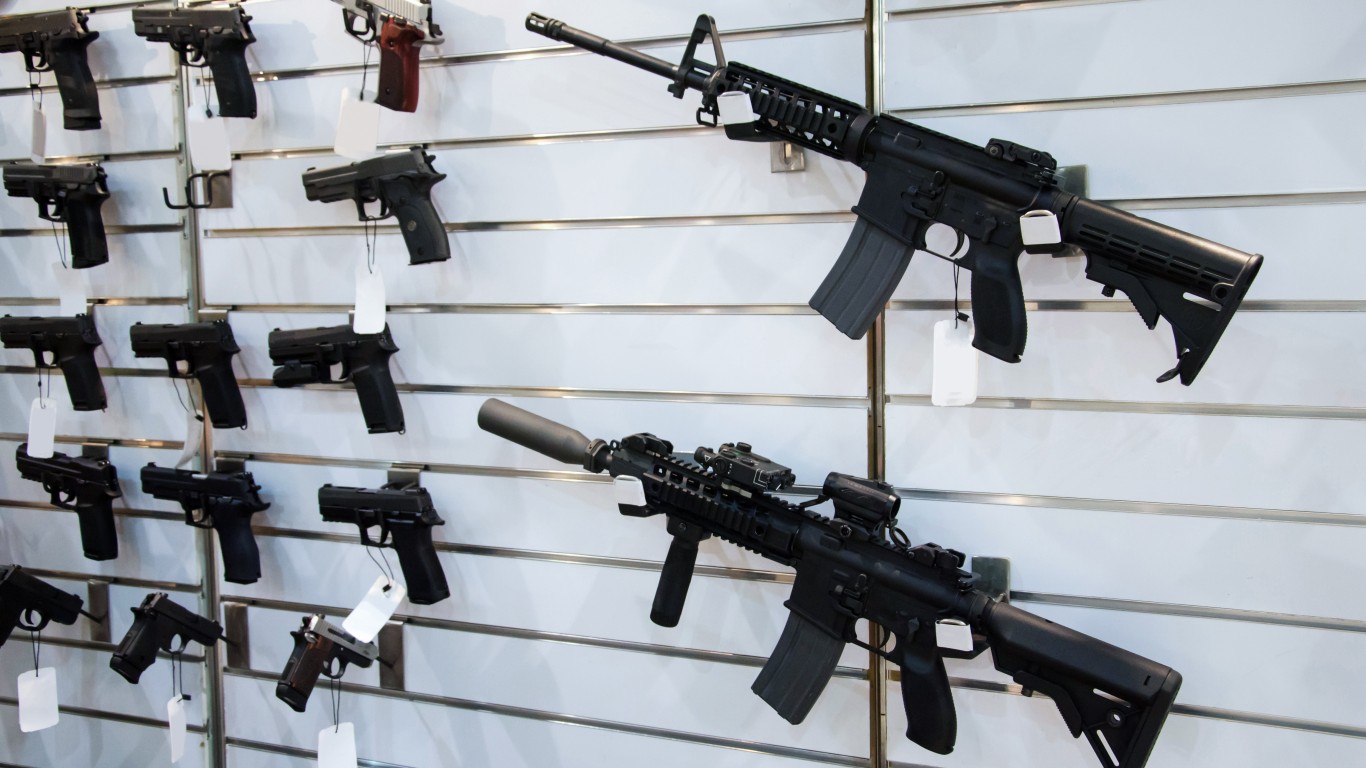
Published:
Last Updated:

The U.S. Constitution guarantees the right to gun ownership, though it also grants state governments broad authority to establish the conditions under which firearms can be sold. To improve public safety and help keep guns out of the wrong hands, some states have implemented strict eligibility standards, imposed waiting periods, and expanded background check requirements for prospective gun buyers. Most states, however, have not.
Variations in state-level gun control policies are significant, and the resulting regulatory patchwork has given rise to a thriving black market, the scope of which is reflected in the latest firearm tracing data from the Bureau of Alcohol, Tobacco, Firearms, and Explosives.
When law enforcement recovers a firearm — typically at a crime scene or from a suspect — they will often report it to the ATF for tracing. In these cases, the ATF assists in criminal investigations by using serial numbers and other markings to determine when and where a firearm was originally purchased,
More than one-quarter of the nearly 400,000 firearms traced by the ATF in 2022 were recovered outside of the state they were initially sold in. While not all guns traced by the ATF were used in a crime — and not all firearms used for illicit purposes are traced — federal tracing data offers valuable insight into trends and geographic patterns related to interstate gun trafficking in the United States.
Using firearm tracing data from the ATF, 24/7 Wall St. identified the states with the biggest gun trafficking problem. We ranked all 50 states on the share of guns recovered by law enforcement and traced by the ATF that were determined to have come from out of state. All data is for the 2022 calendar year.
Depending on the state, the share of traced firearms in 2022 that came from out of state ranges from about 13% to over 80%.
The states where the most recovered firearms were determined to have come from out of state tend to have strict gun control laws. Gun violence prevention group Giffords Law Center assigned eight of the 10 top ranking states on this list a letter grade of either “A” or “A-” for the strength of their gun laws. (Here is a look at every state’s grade on gun laws.)
New York, for example, has some of the strongest gun laws in the country, including a provision that closes the federal background check loophole. Last year, the ATF traced more than 1,000 firearms recovered in New York back to Georgia, a state with a decidedly hands-off approach to gun policy and with no universal background check law.
Not all firearms recovered by law enforcement are deliberately moved across state lines to evade local laws, however. Often, geographic circumstances appear to play a role. For example, nearly half of the more than 4,000 firearms recovered in Tennessee in 2022 were first sold in one of three neighboring states along Tennessee’s southern border: Alabama, Georgia, or Mississippi. Notably, Alabama, Georgia, Mississippi, and Tennessee each have an “F” letter grade for the strength of their gun laws. (These are the states where anyone can get a gun today.)
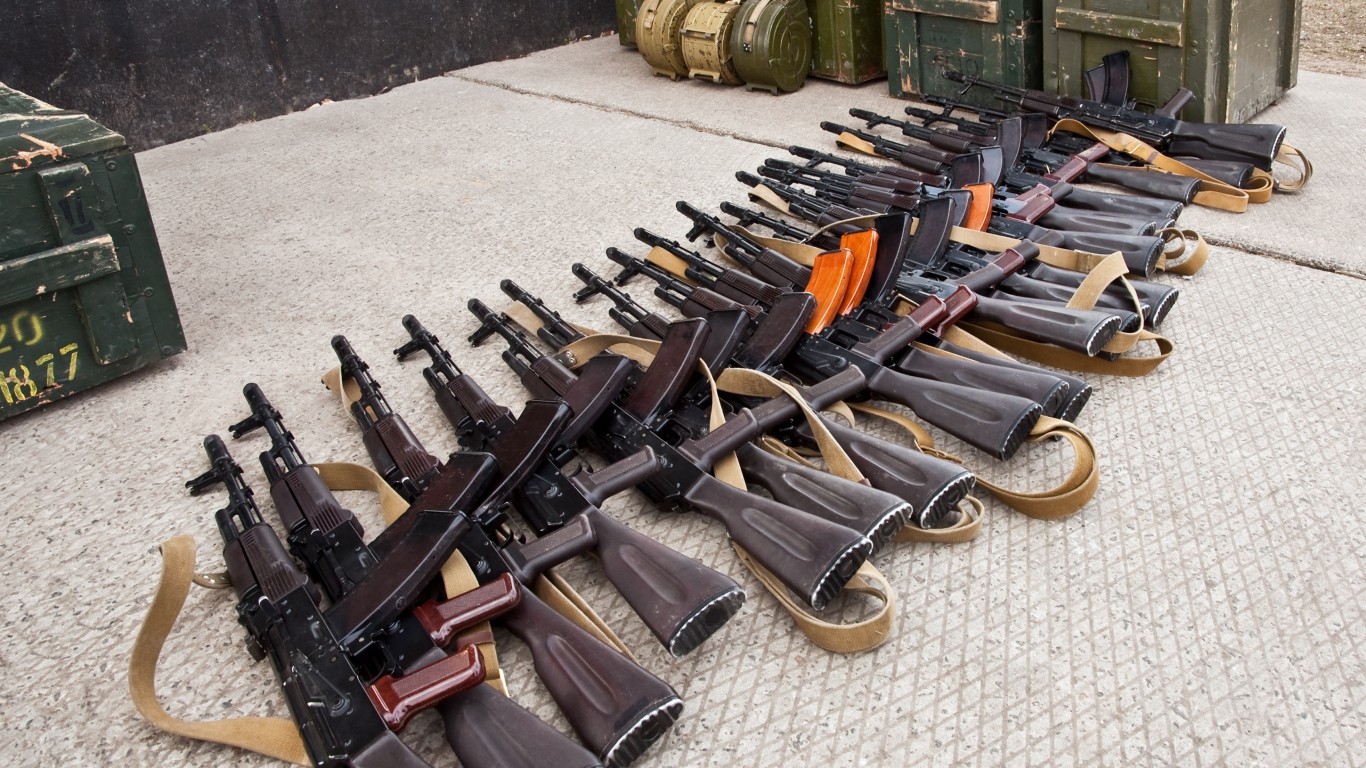
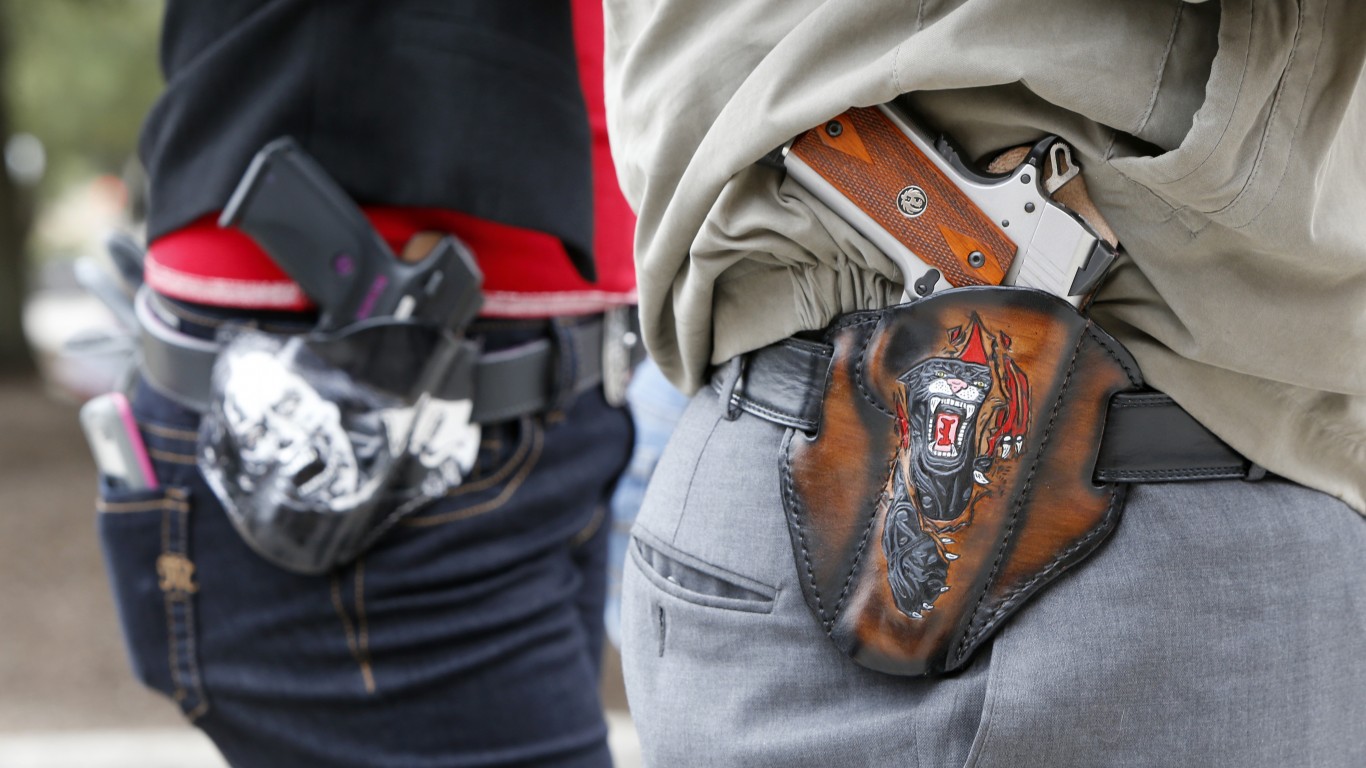

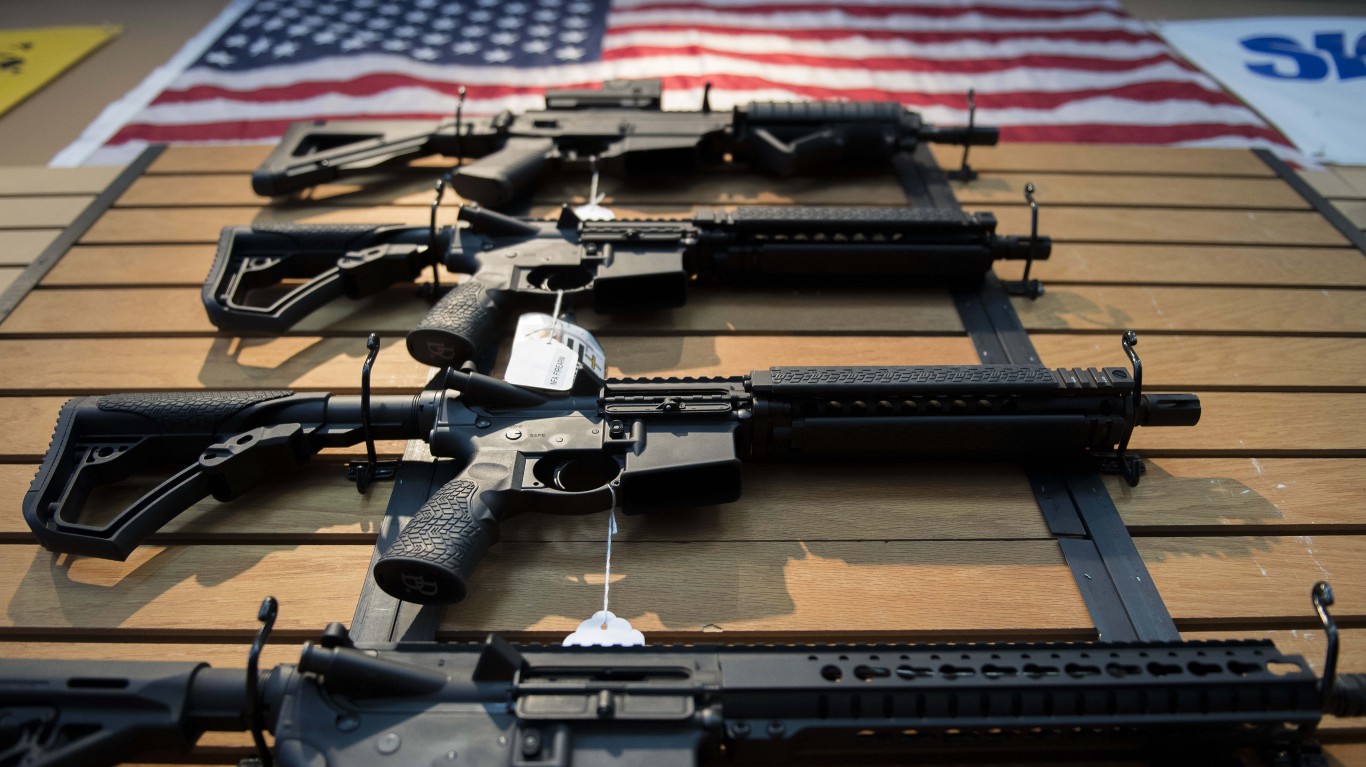
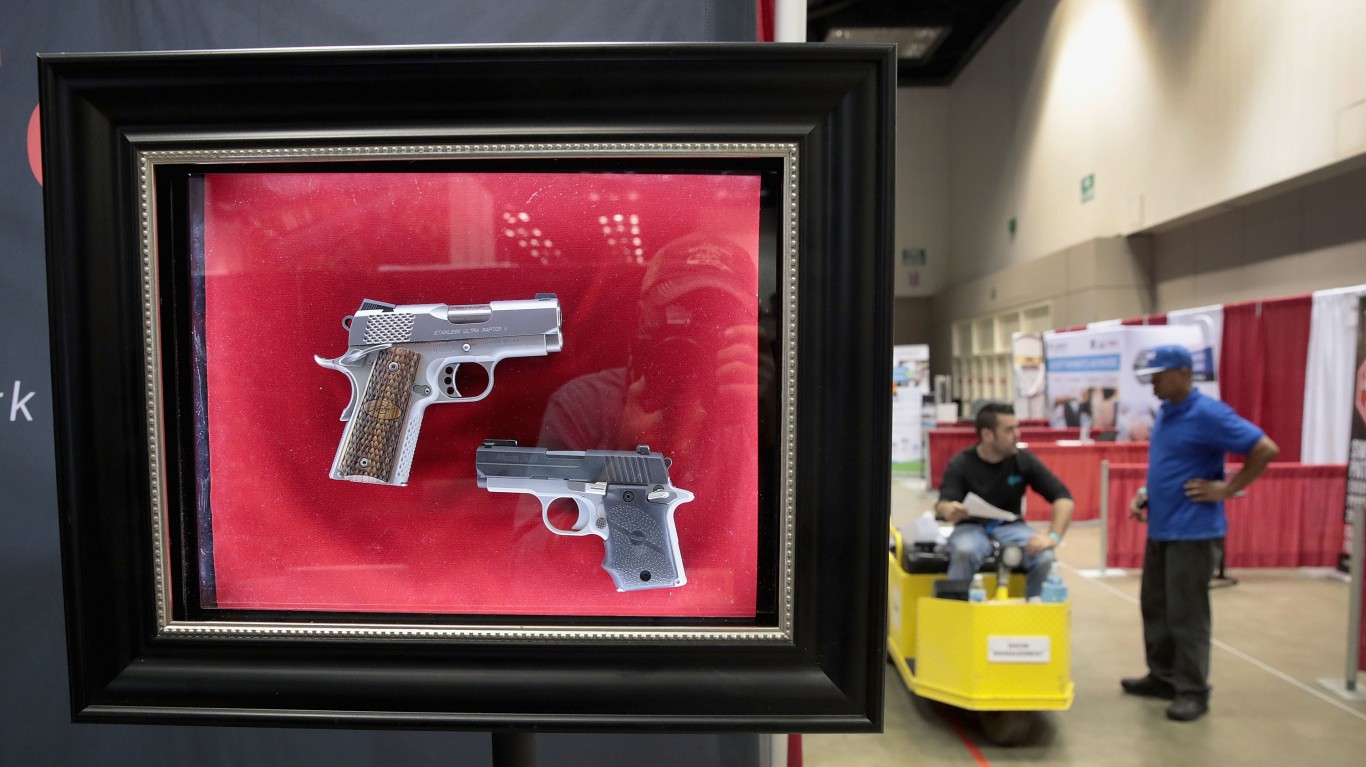
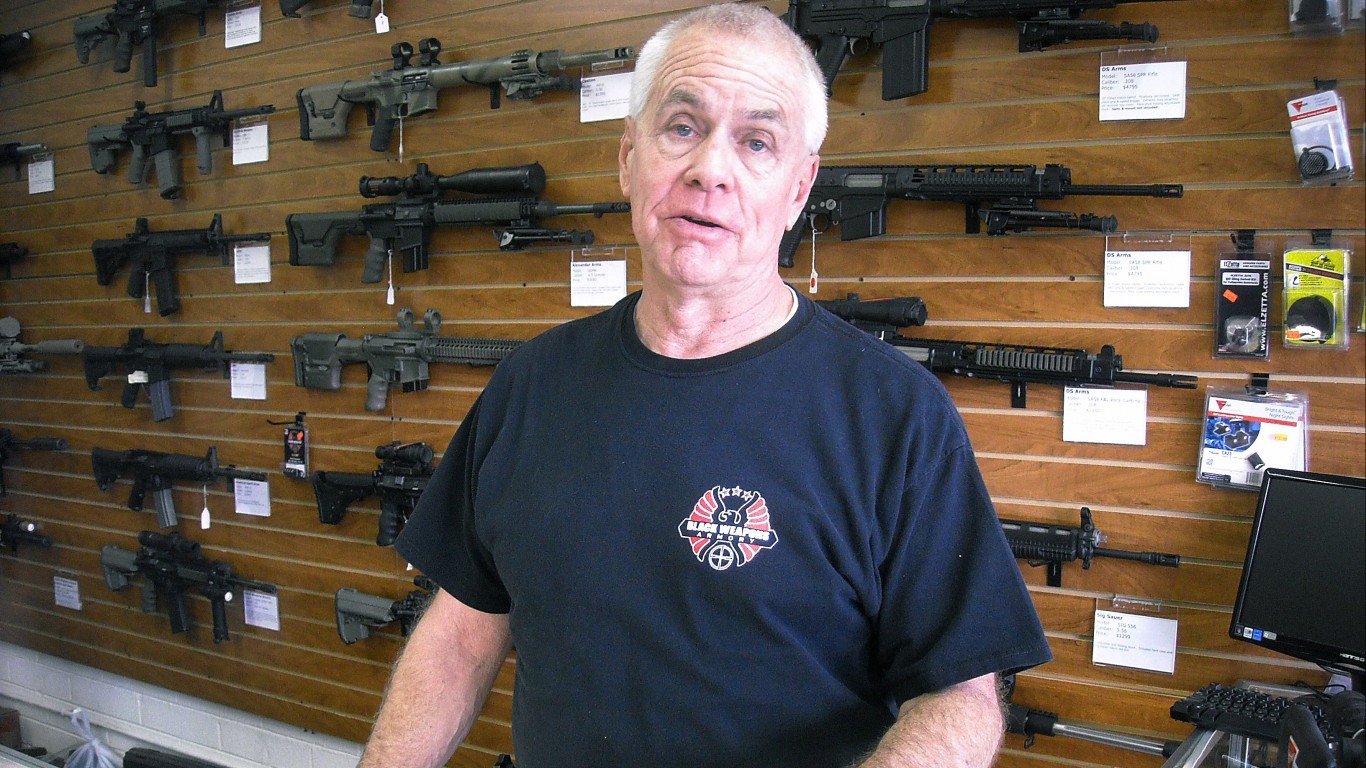
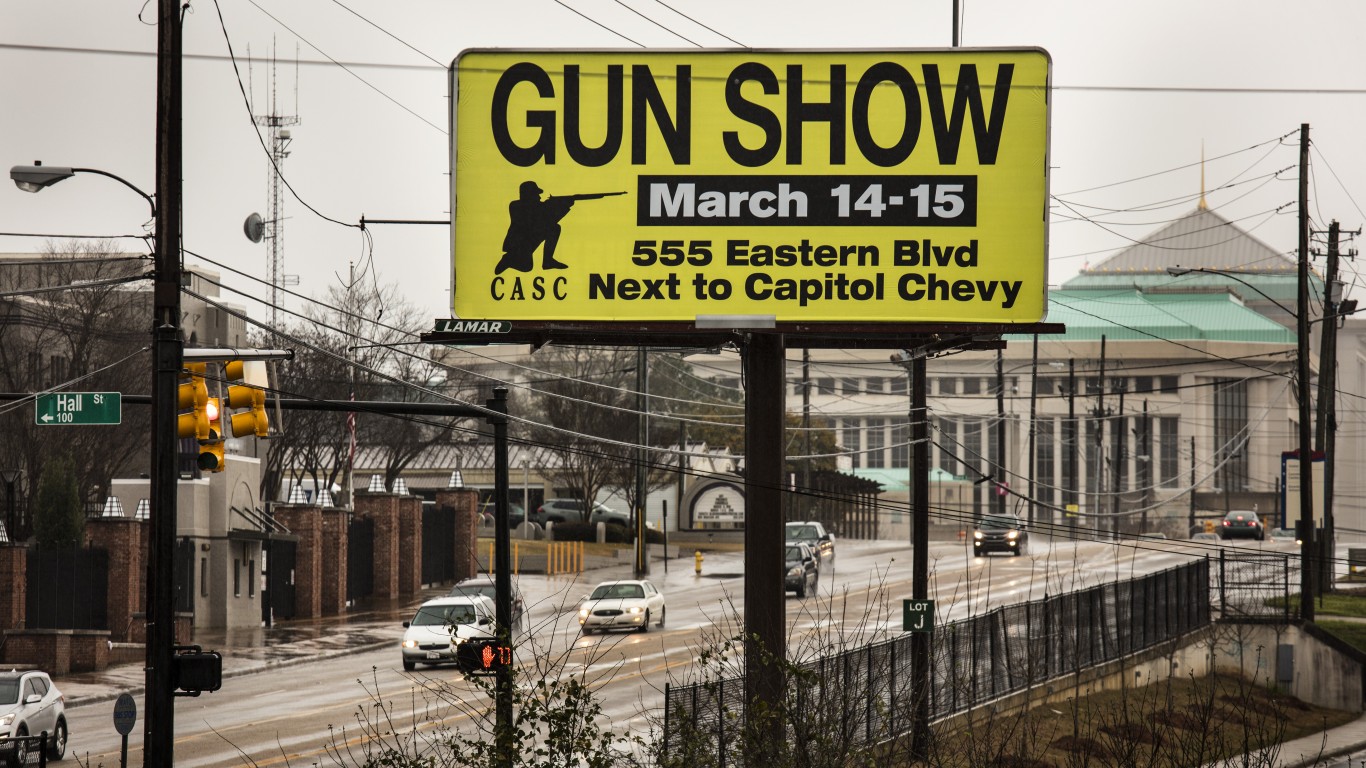
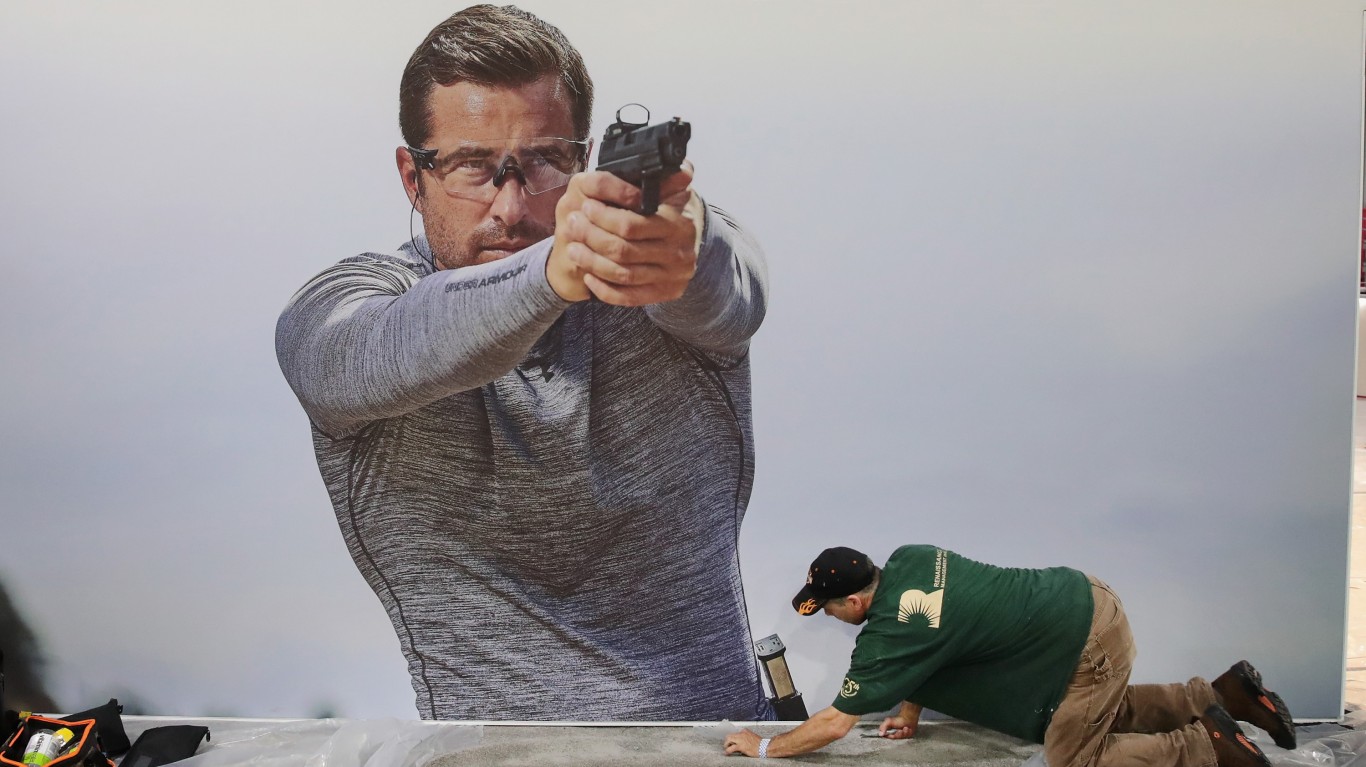
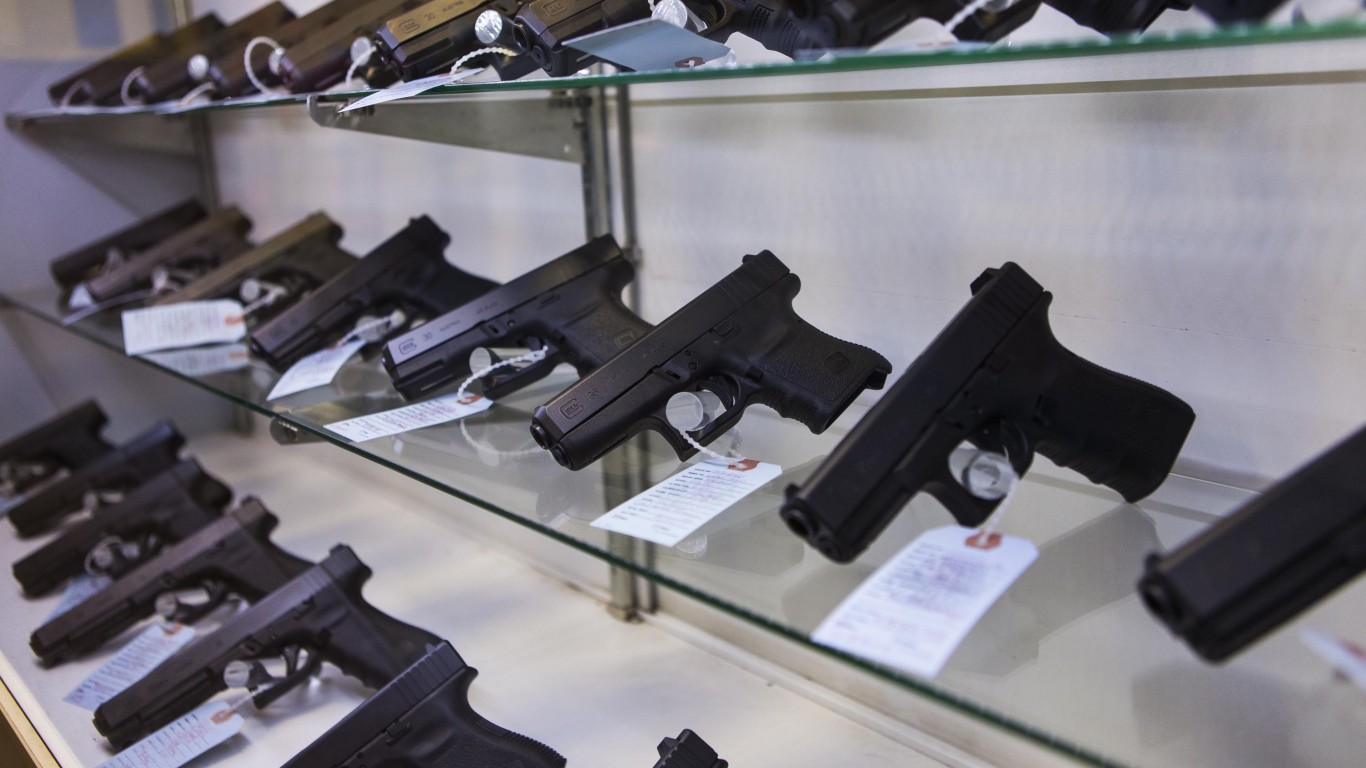

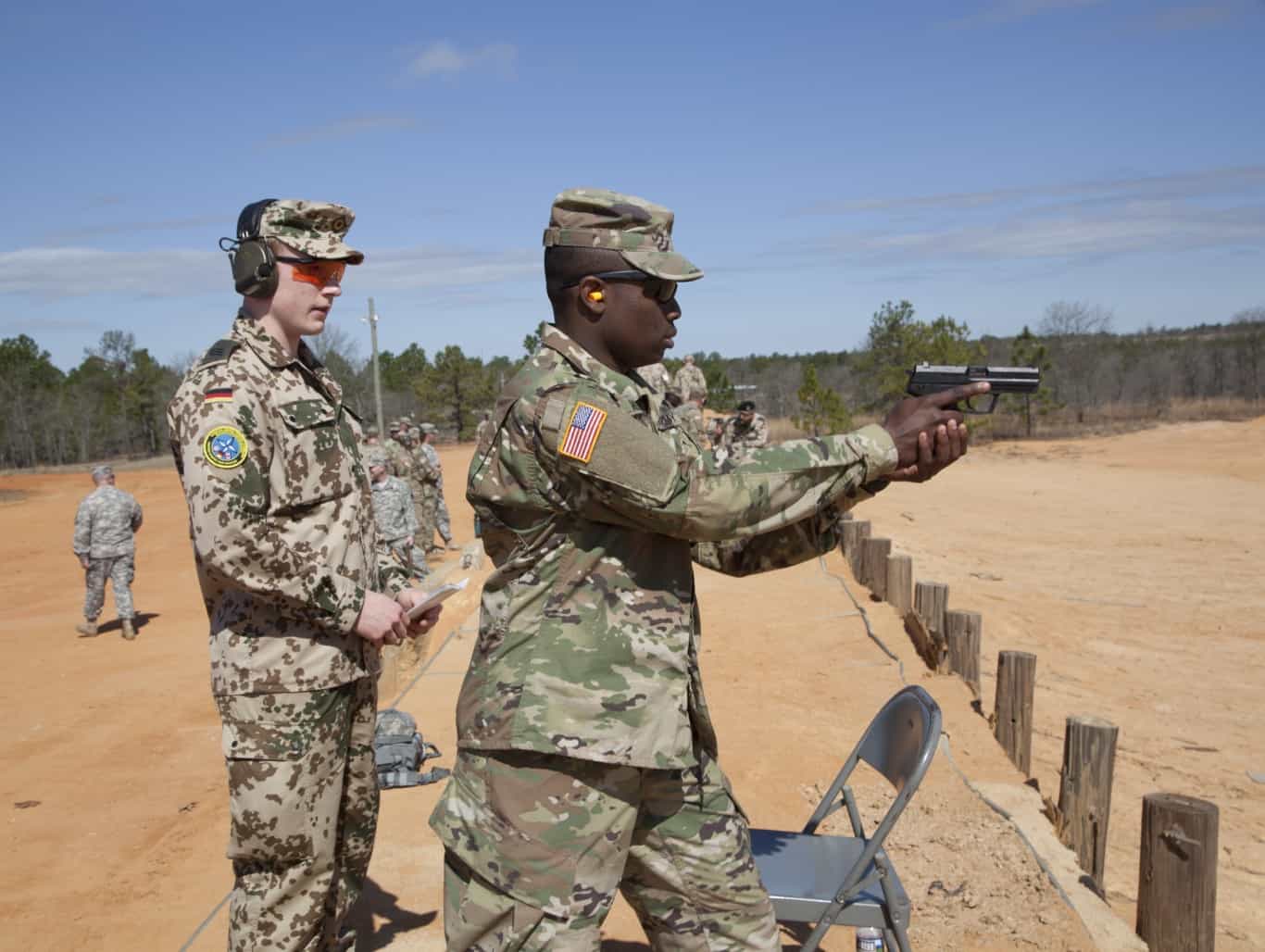
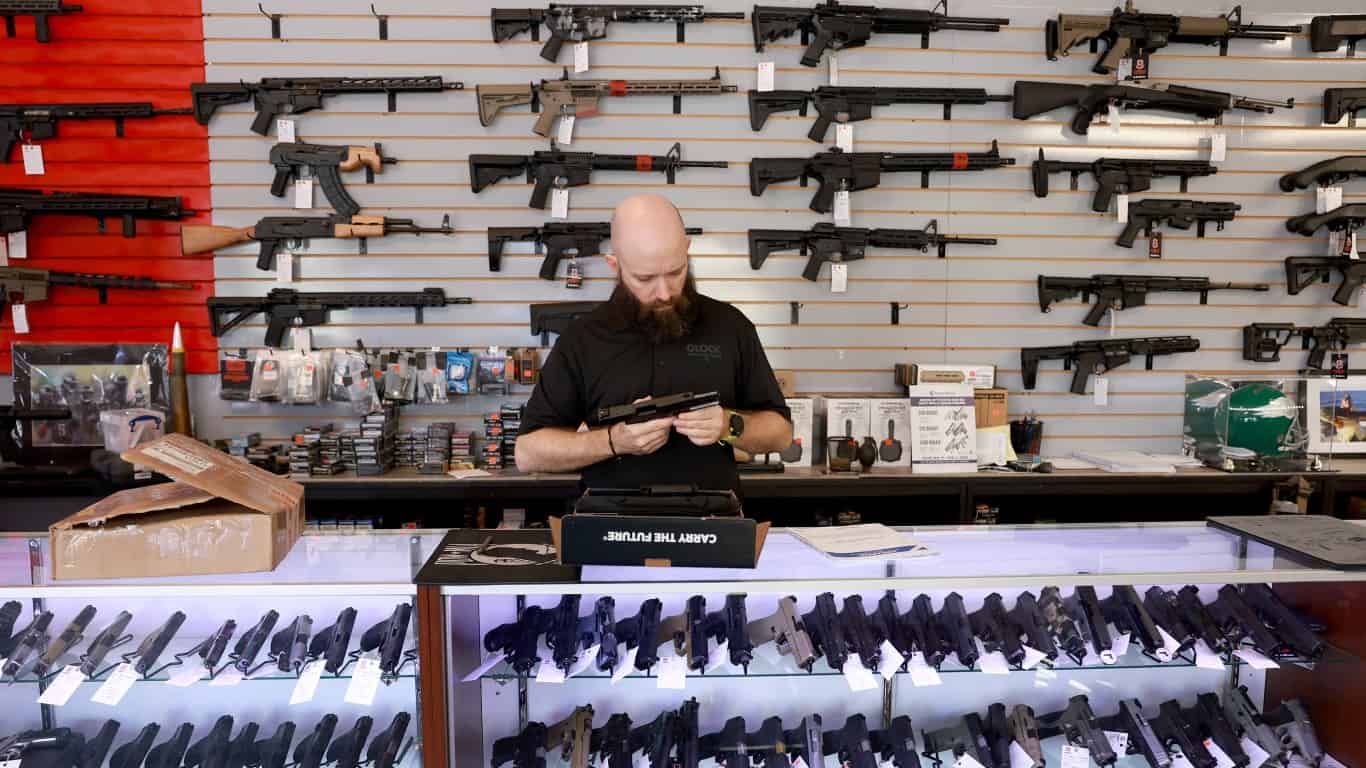
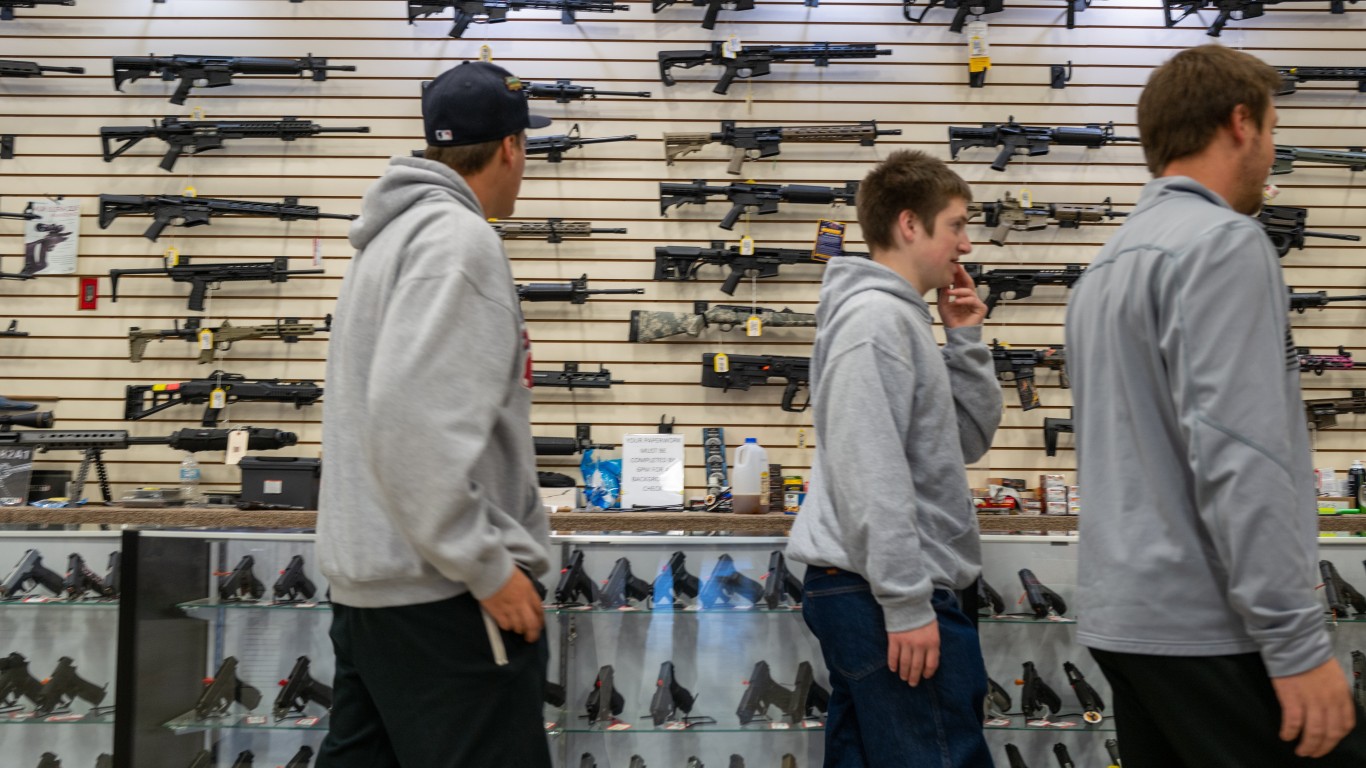


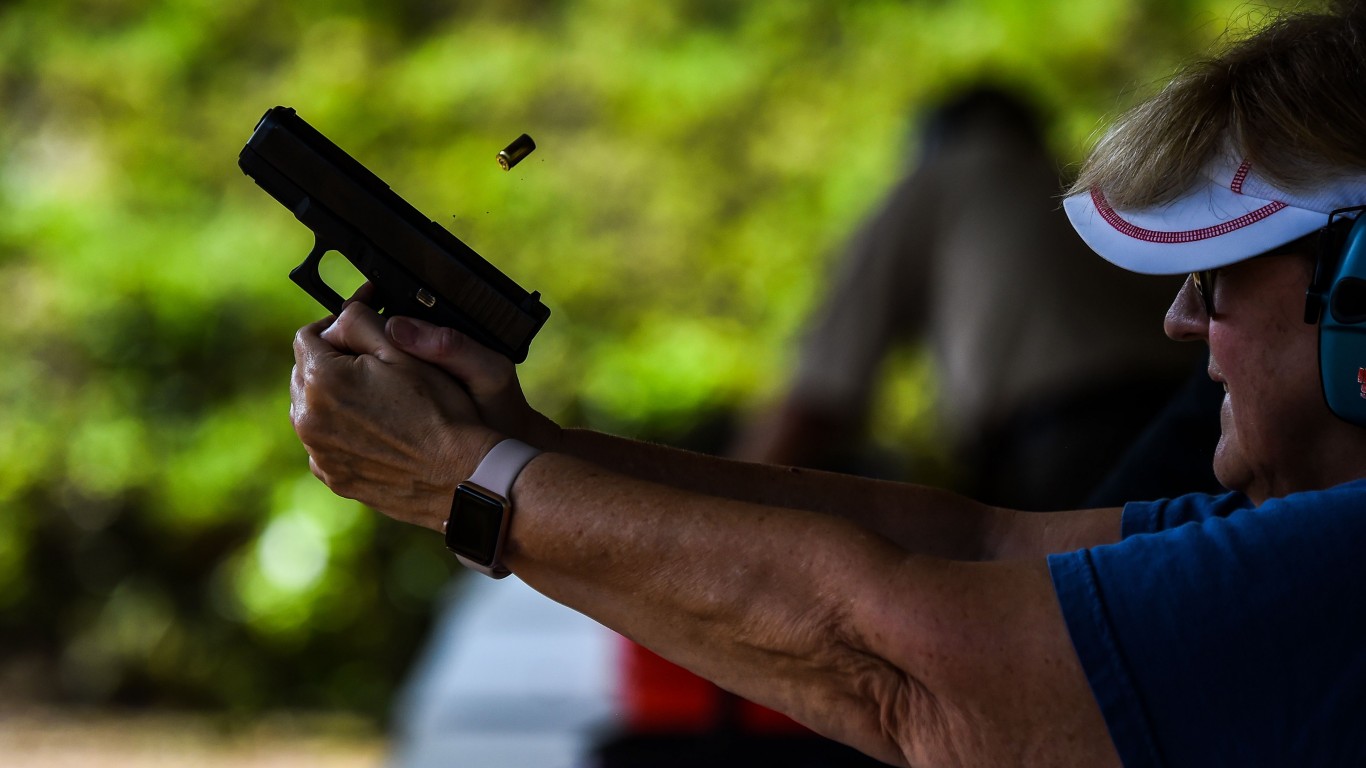



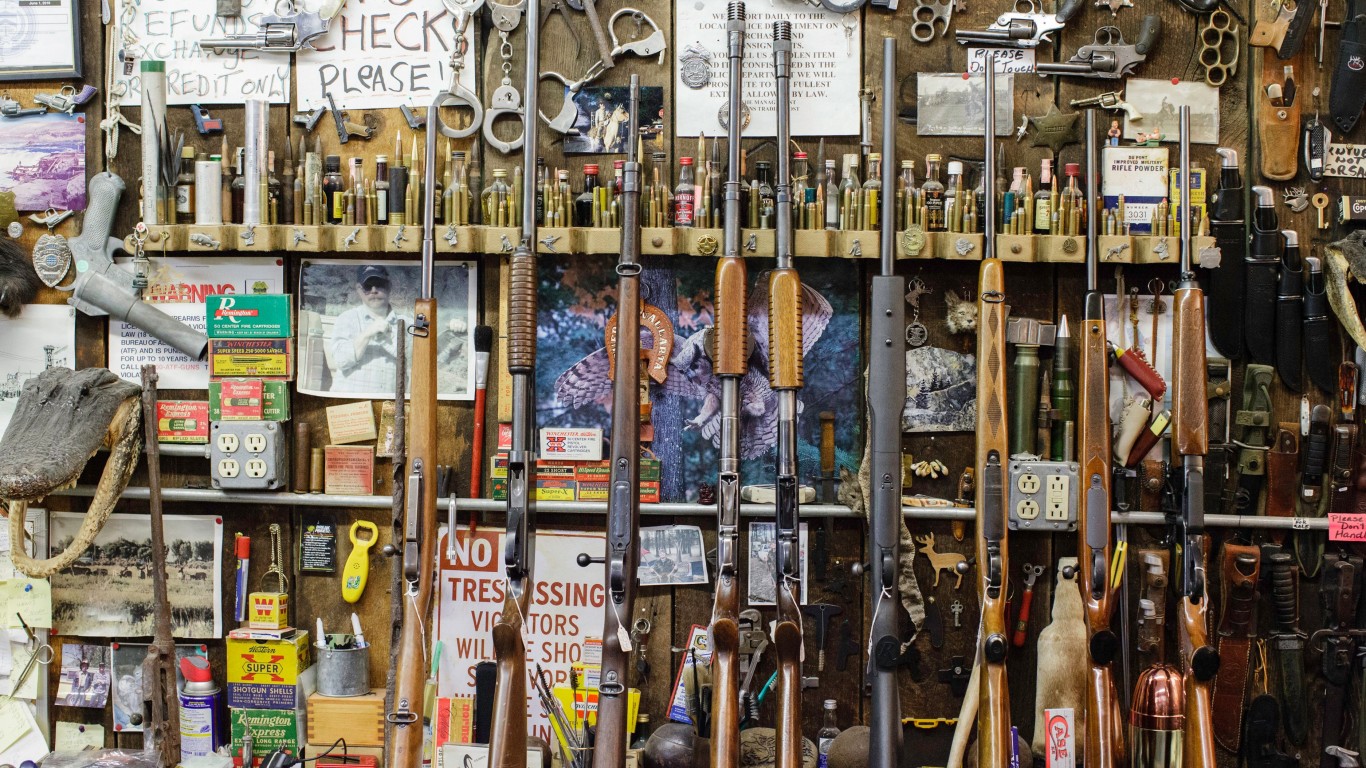
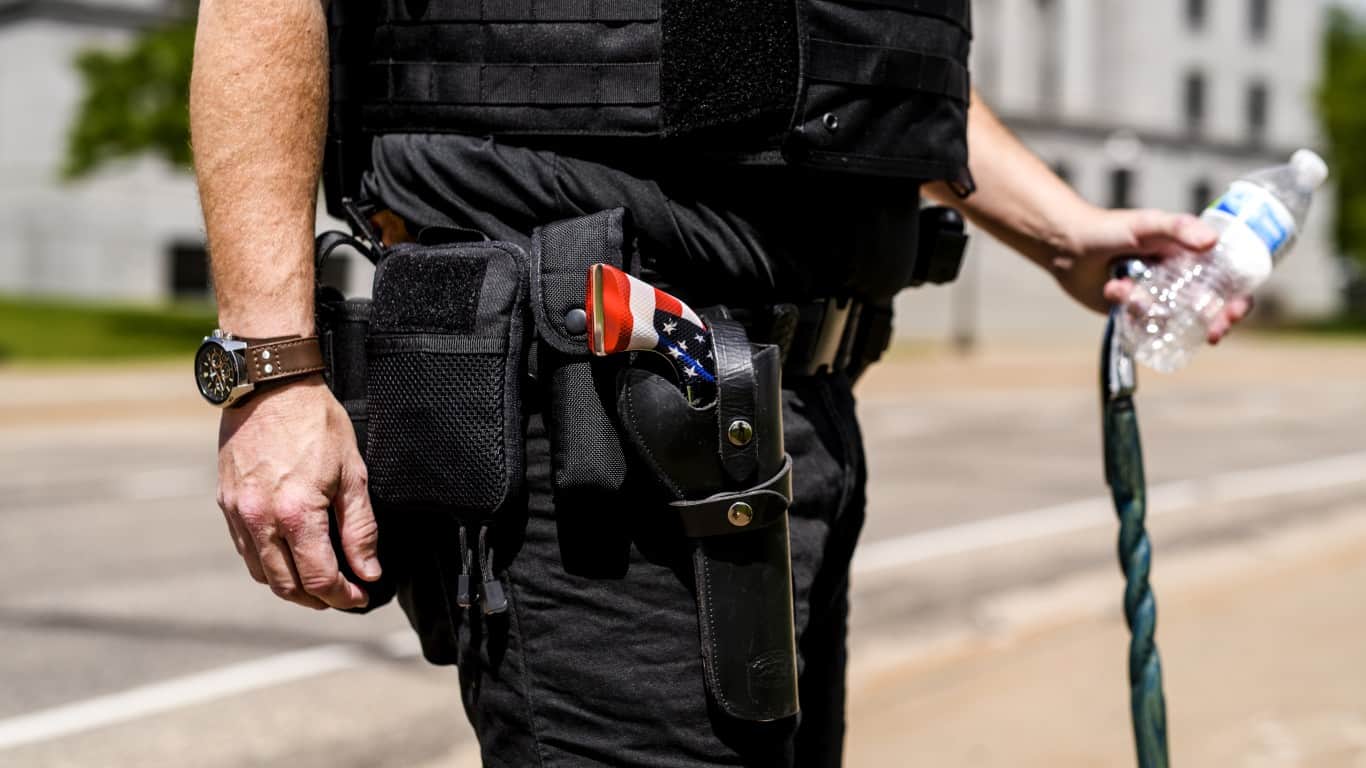



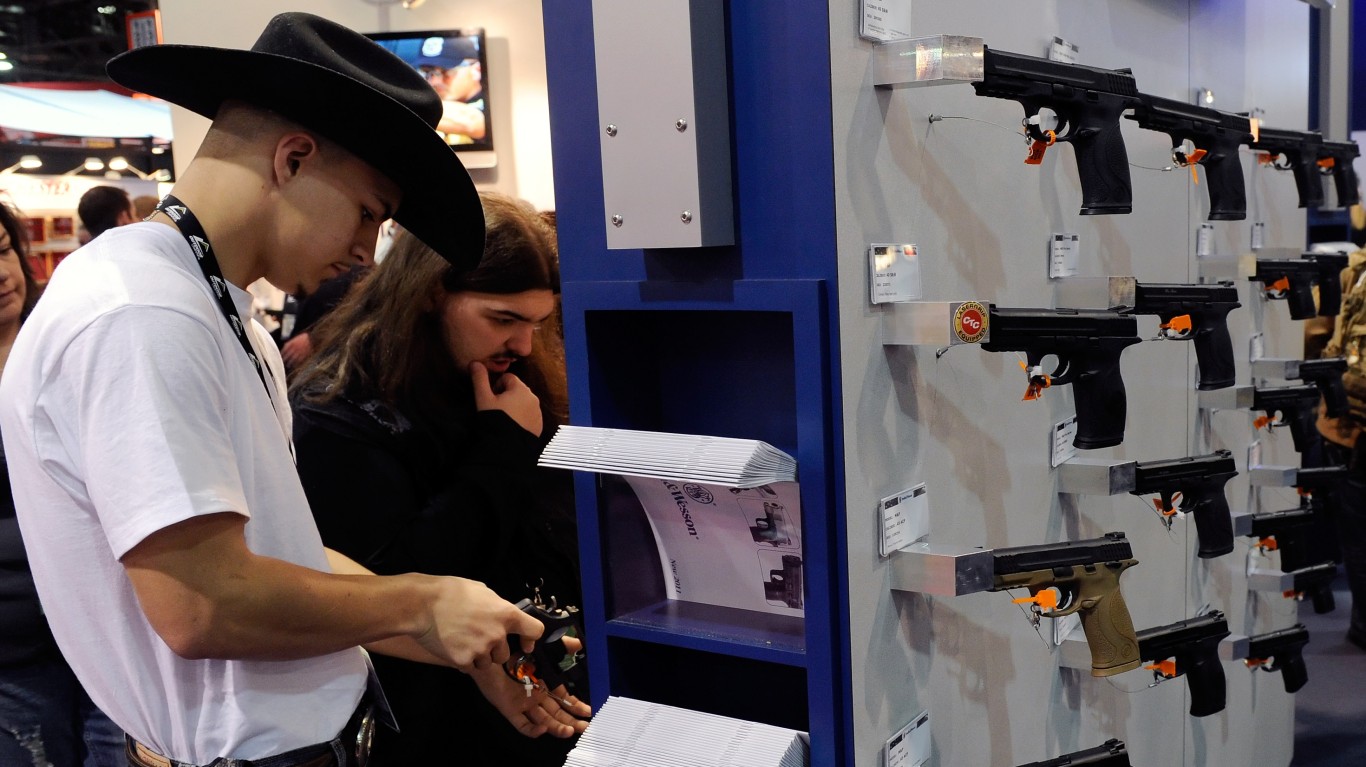



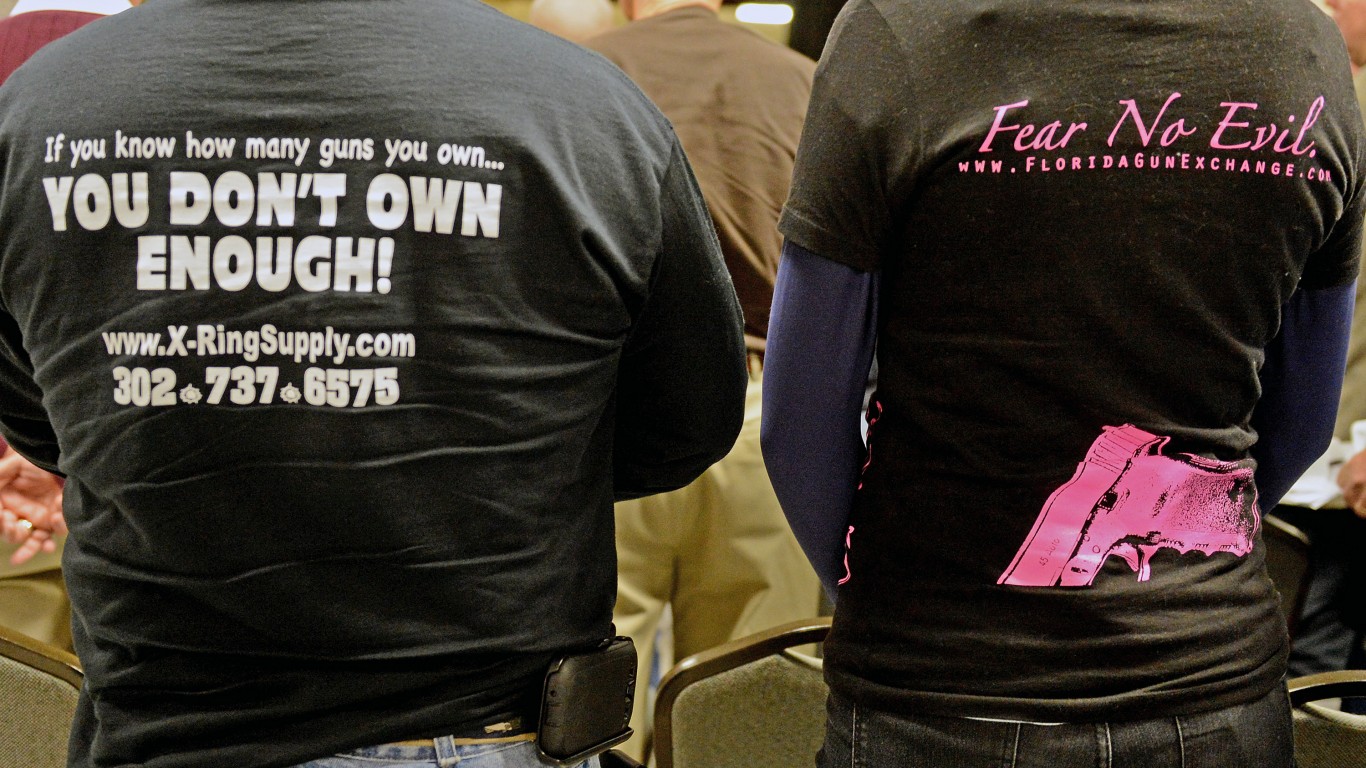




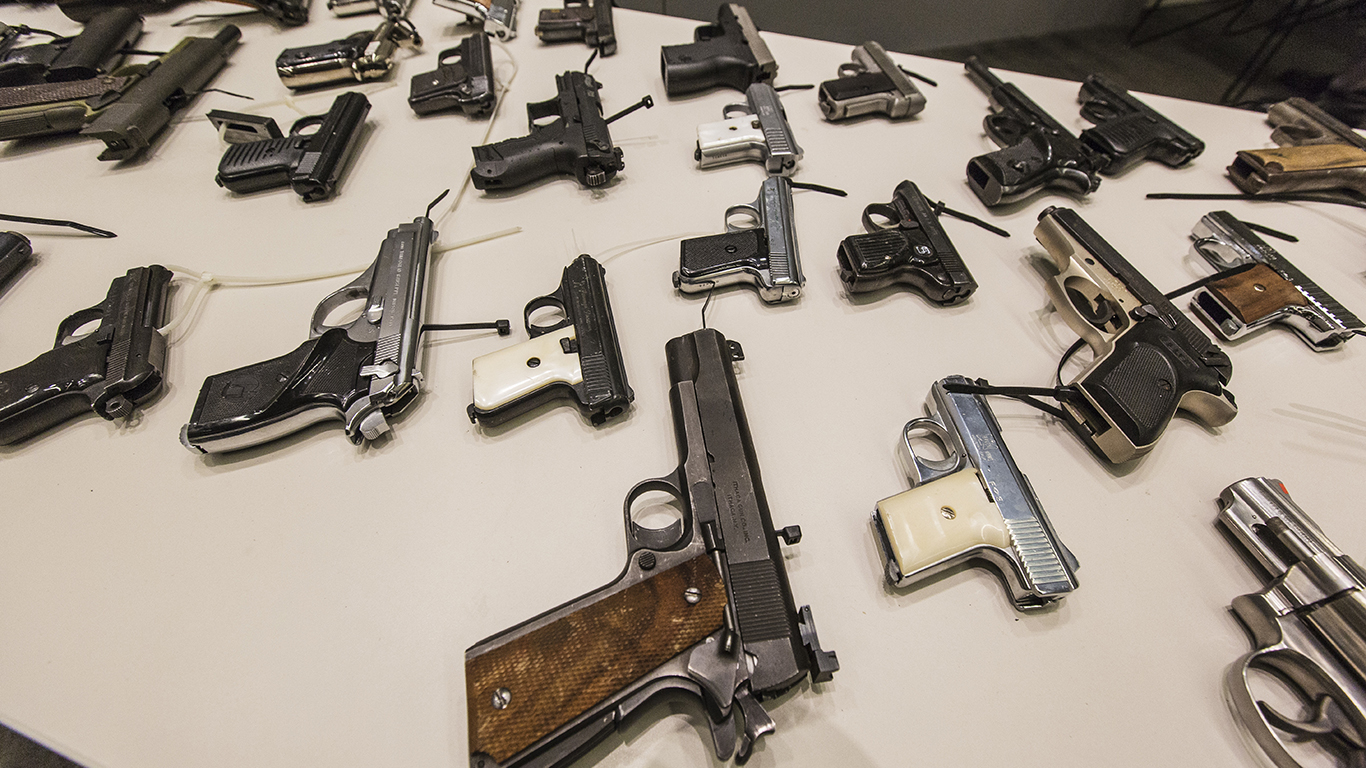

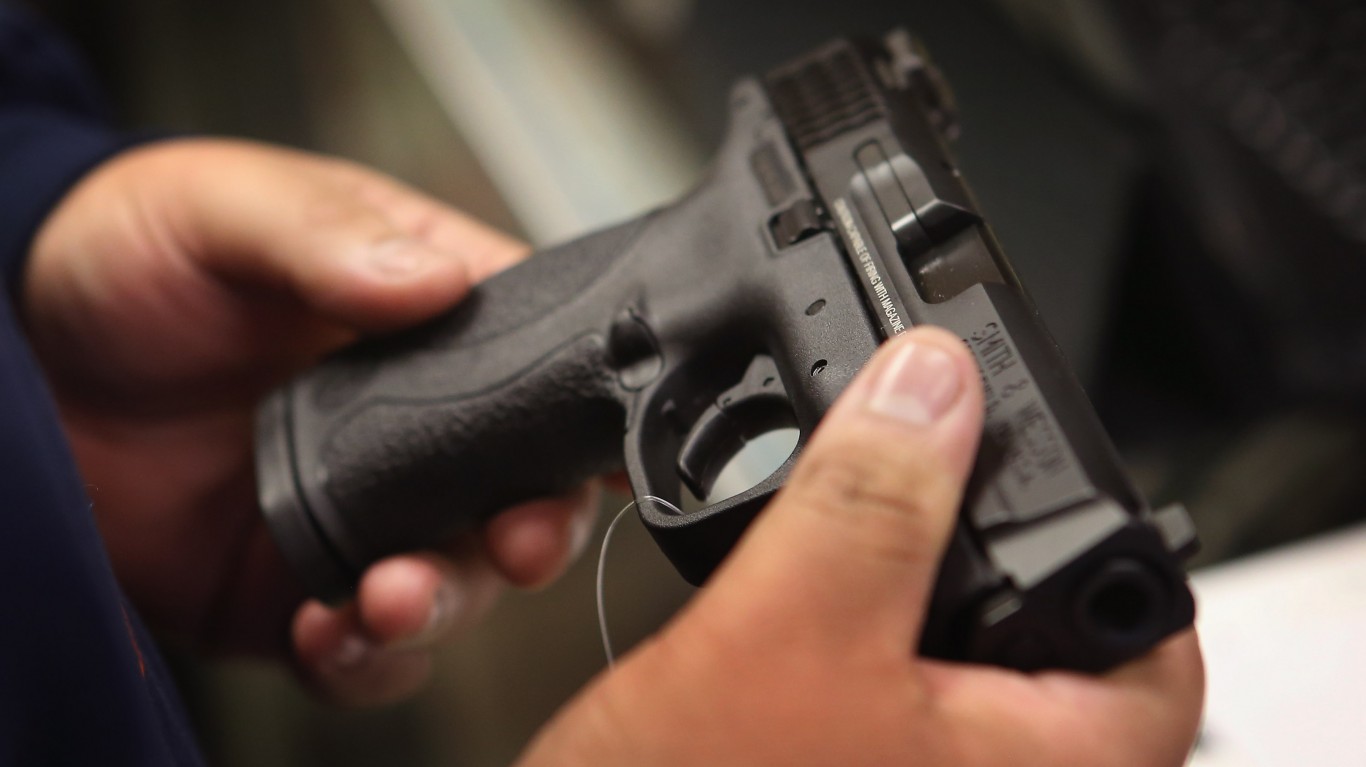
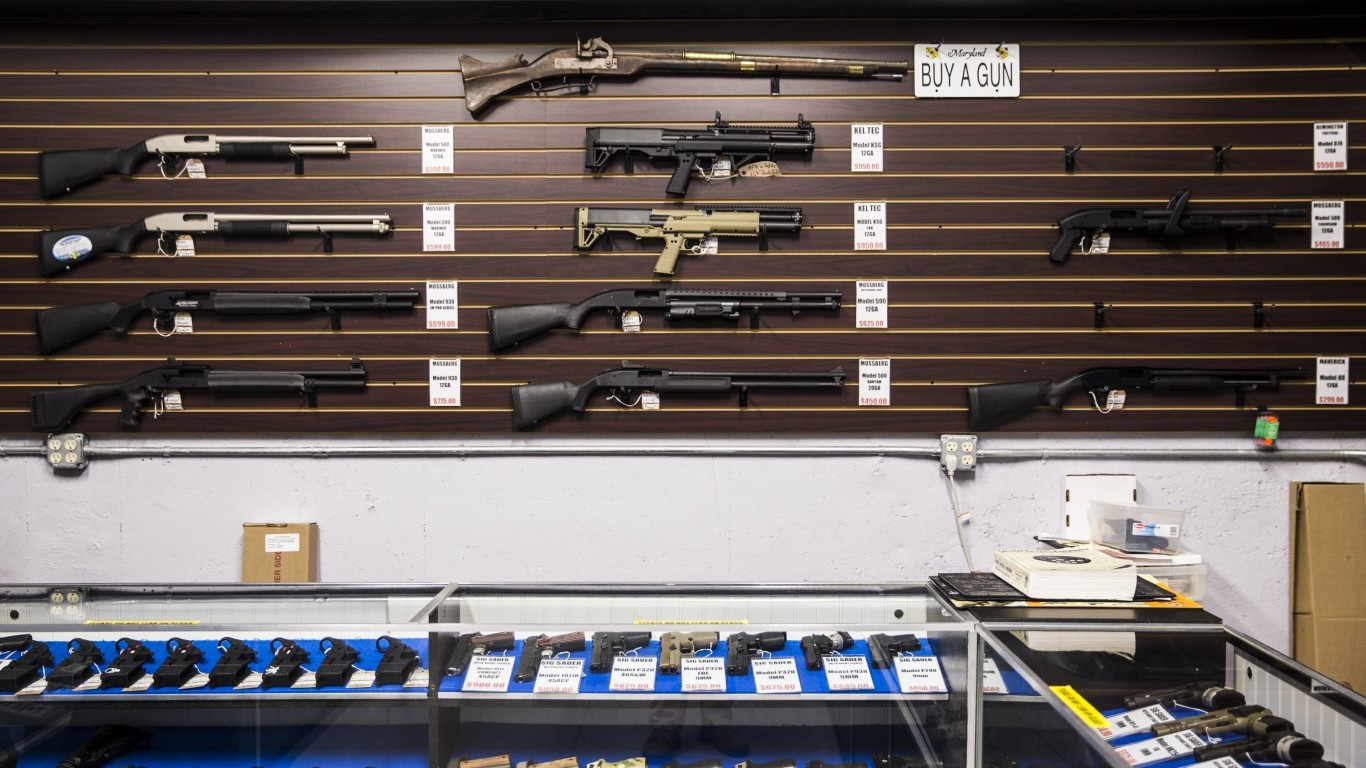


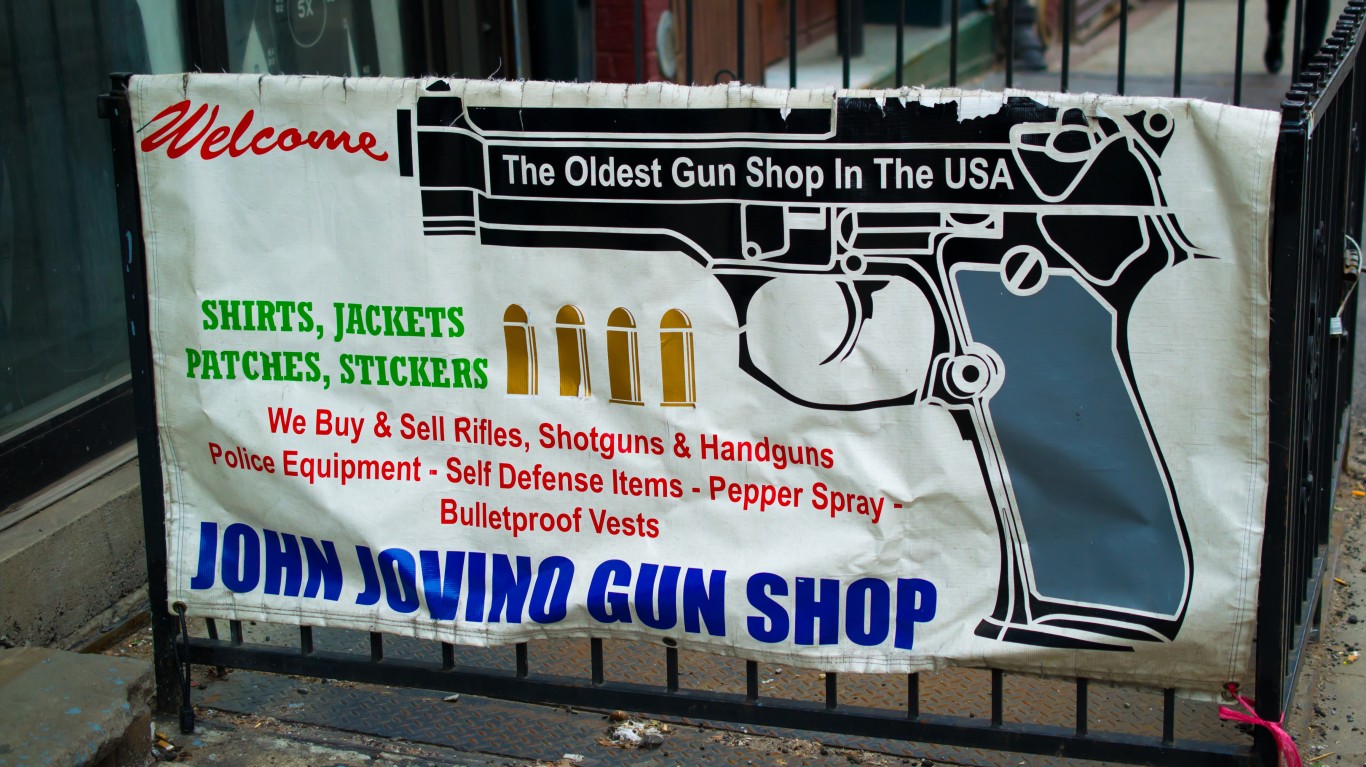
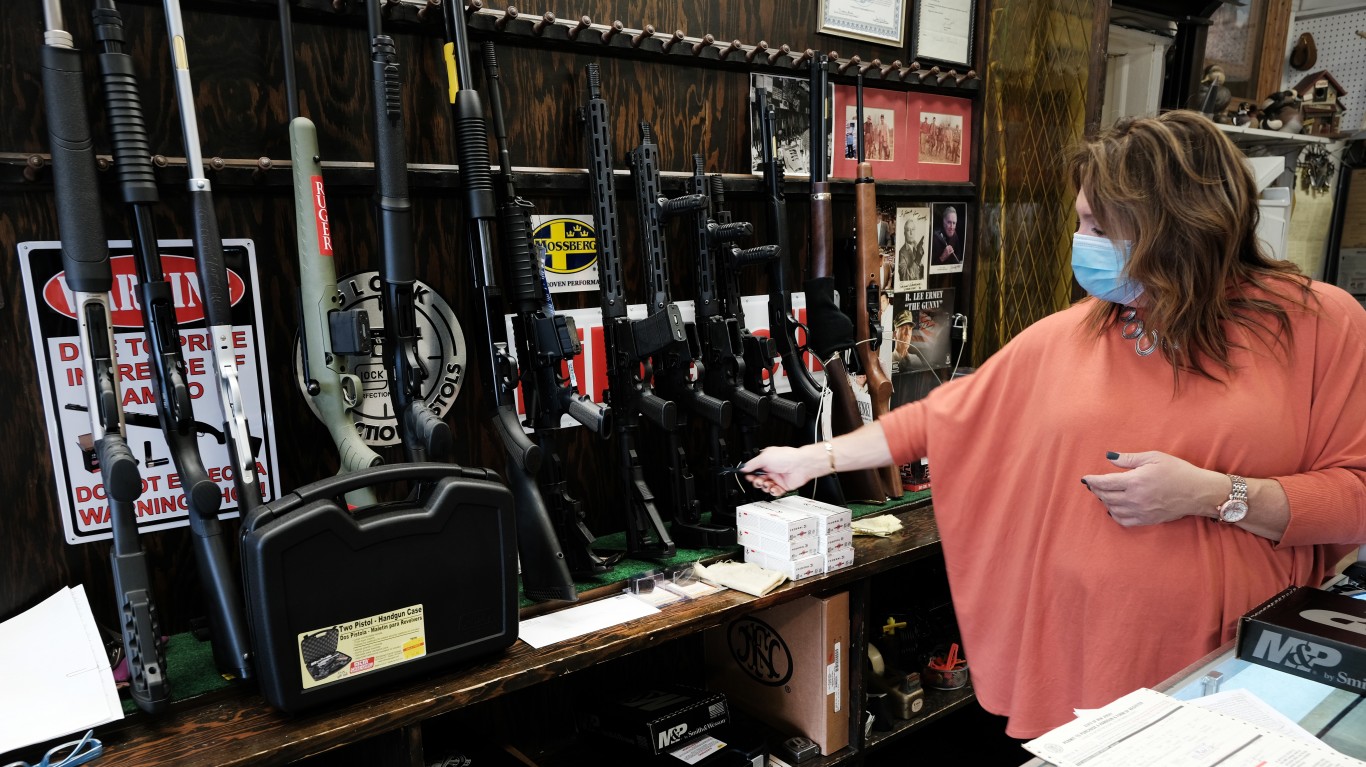
The Average American Is Losing Momentum On Their Savings Every Day (Sponsor)
If you’re like many Americans and keep your money ‘safe’ in a checking or savings account, think again. The average yield on a savings account is a paltry .4%1 today. Checking accounts are even worse.
But there is good news. To win qualified customers, some accounts are paying more than 7x the national average. That’s an incredible way to keep your money safe and earn more at the same time. Our top pick for high yield savings accounts includes other benefits as well. You can earn up to 4.00% with a Checking & Savings Account today Sign up and get up to $300 with direct deposit. No account fees. FDIC Insured.
Click here to see how much more you could be earning on your savings today. It takes just a few minutes to open an account to make your money work for you.
Thank you for reading! Have some feedback for us?
Contact the 24/7 Wall St. editorial team.